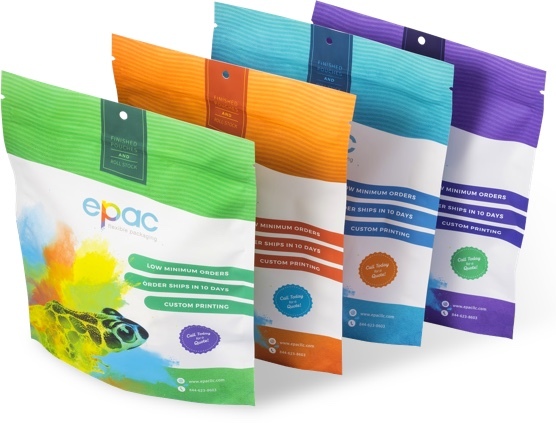Technology has provided companies with many benefits. In recent years, advances in printing processes have produced numerous advantages in the realm of packaging. These innovations have made the process quicker and they have also moved the concept of eco-friendly packaging forward. By doing away with expensive and time-consuming printing plates, digital printing allows for smaller print runs without the excessive costs of setup fees. In addition to reducing expenses, these changes have helped in other areas, too. It allows for improved nimbleness, allowing customers to bring products quickly to market. With this versatility comes an ability to change the look of products more often and to take advantage of abrupt changes in the market. Just as importantly, in many areas, especially the food product industry, it results in less spoilage of a product; this is a benefit to the planet, reducing greenhouse gas emissions during many stages of bringing a product to consumers.
What Is Sustainable Packaging?
In general terms, the definition of sustainability means avoiding the practice of depleting natural resources in order to maintain an ecological balance. In short, it is a good thing. Smart flexible packaging helps the Earth in a multitude of ways. It replaces old practices that were detrimental to ecosystems with new practices that are neutral or beneficial to the air and water. When done effectively, sustainable packaging accomplishes important goals:
- Reduces carbon emissions
- Recycles materials
- Avoids or limits toxic materials
- Reduces waste and excess inventory
The benefits begin in the HP digital printing process as these printers use less energy than traditional methods. Also, polymer-based inks do not contain hazardous air pollutants and are compostable. The use of solventless laminations in the manufacturing process keeps volatile organic compounds out of the packaging. An emphasis on recyclable materials in the packaging, especially in hard-to-recycle components such as zippers and labels, is another advantage. Finally, the lighter weight of flexible packaging and the reduced amount of unused space results in much lower use of energy in the transportation phase. All of this adds up to packaging that is kinder on the planet.
Using ePac As Your Sustainable Packaging Provider
Not all companies have found the best way to reduce a carbon footprint and offer a quality packaging product. It is important for a company to both protect the planet and to provide superior packaging solutions. For sustainable packaging to be successful it should put a product in its best possible light. This includes keeping food products fresh at all times and ensuring a long shelf life. It means providing quality graphics that make the container look bright and attractive while imparting vital information about the product. It also means offering a wide selection of packaging for different types of products. Perfect coffee beans packaging bags will probably differ from the ideal container for a jerky company. While one product will probably place on an emphasis on freshness, the other will need to prioritize freezer-safe packaging. Any product though can enhance its brand image with sustainable packaging. The right packaging provider will be able to accomplish all of these outcomes.

